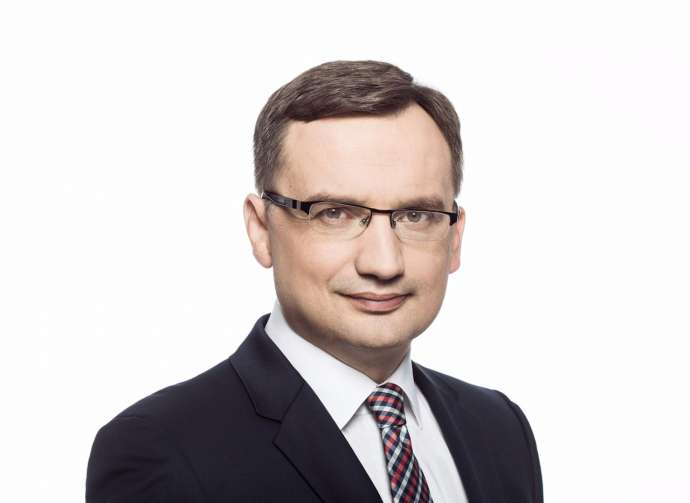STA, 2 September 2020 - Polish Justice Minister Zbigniew Ziobro has invited Slovenia in a letter to join Poland in withdrawing from the Istanbul Convention, a European treaty aimed at preventing violence against women, the newspaper Delo reported on Wednesday.
Poland, which finds the treaty "harmful" because it requires schools to teach children about gender, proposed to Slovenia that a new convention be drawn up.
Several versions of the new convention were reportedly mentioned, including one that would promote protection of children in the face of moral corruption and the definition of a child based on the 1989 UN convention but with an addition that the child's life starts at conception.
It would also include a definition of the family as exclusively one consisting of a father, mother and a child or children, and the possibility of marriage only between a man and woman.
Ziobro has labelled the Istanbul Convention a feminist invention that wants to justify homosexual ideology. He announced Poland's intention to withdraw from the convention at the end of July, thus causing a stir both in Poland and abroad.
Thousands of Polish people gathered at protests around the country, and the EU and the Council of Europe expressed regret at the decision.
The Istanbul Convention is the first internationally binding instrument for prevention of violence against women, from rape to domestic violence and genital mutilation. It has been drawn up by the Council of Europe, the oldest human rights organisation in Europe.
Slovenia signed the convention in 2011 and ratified it in 2015, the same year as Poland.
In Slovenia, 80 MPs of the 90-member parliament voted in favour of the ratification. The EU signed the convention in June 2017.
After signing the convention, Slovenia amended the act on preventing domestic violence and explicitly banned corporal punishment of children.
The government has not stated its opinion on the convention yet, but MP of the ruling Democrats (SDS) Branko Grims, who according to Delo voted in favour of the ratification in 2014, commented on Poland's announcement on Twitter in July by saying that Slovenia too should withdraw from the convention.
Meanwhile, the Justice Ministry told the STA later in the day that it had received Poland's letter. However, the ministry sees no reason to withdraw from the convention or to amend it, a stance which has been made clear to Poland as well.
The ministry received the letter on 25 August and its reply reads that the convention is an important international legal instrument regarding preventing and tackling domestic violence and violence against women.
"The ministry believes that the convention sets good foundations for facing societal challenges and paves the way for values, such as equality and decency for all our citizens," said the ministry, adding that international law, EU law and Slovenia's law ensure appropriate legal frameworks in this area.
Hence, the ministry does not see any reason to come up with a different treaty. Moreover, changes proposed by Poland would entail amendments to Slovenia's law and constitution.
The letter has been sent to the Ministry of Labour, Family, Social Affairs and Equal opportunities, said the Justice Ministry, since it concerns relevant issues for the former ministry as well.
The Modern Centre Party (SMC), of which Justice Minister Lilijana Kozlovič is a member, said earlier that withdrawing from the Istanbul Convention would be unacceptable.
"Slovenia as a state should not be even considering that," said Janja Sluga of the SMC, highlighting that the convention primarily aimed to ensure a Europe without violence against women and children and to protect decency and equality of all citizens.
Poland's initiative jeopardises Slovenia's constitutional and legal system, she said, adding that it would push us back to the dark times when women and children's abuse was a norm.
Asked whether the government could withdraw from the convention on its own even though it was parliament who had ratified it, she said that the question should be addressed to parliament.






